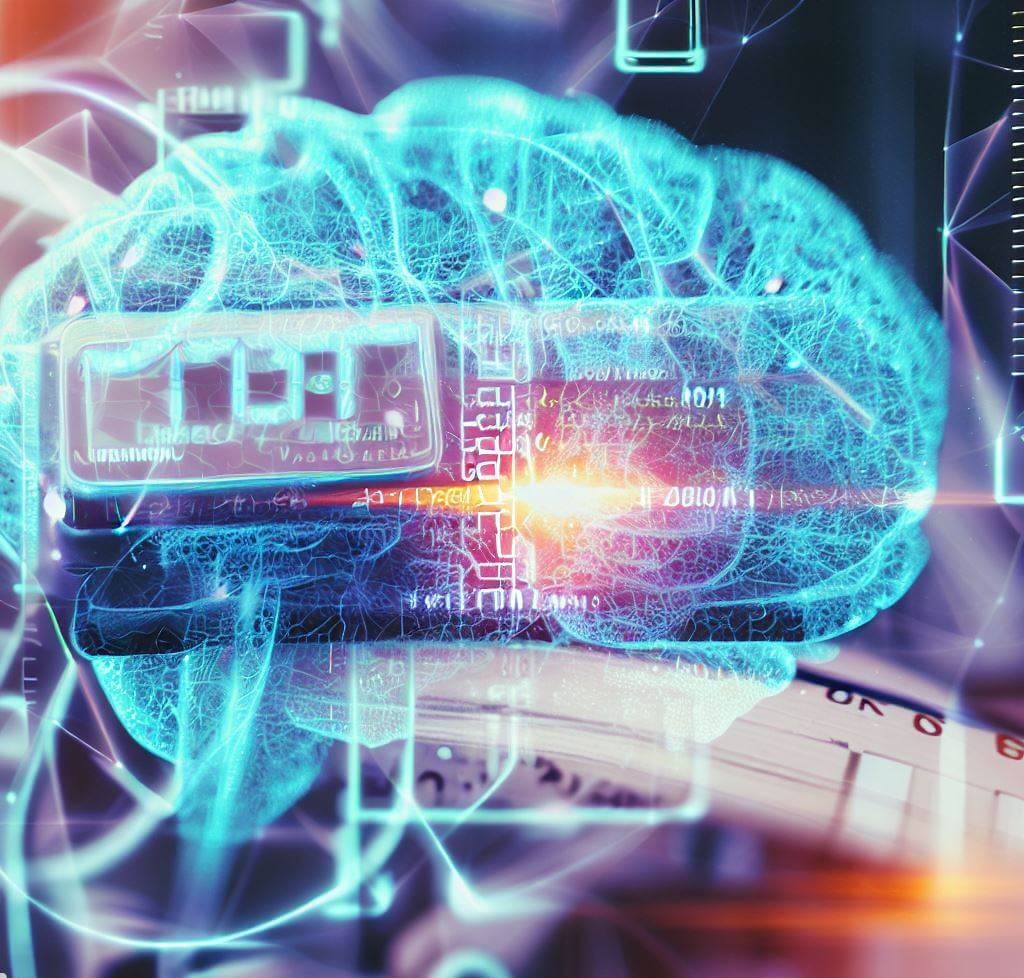Introduction
The advent of Artificial Intelligence (AI) has sparked a transformative revolution across various sectors worldwide, and the healthcare industry is no exception. With its unparalleled analytical prowess, AI has begun to penetrate deeply into healthcare practices, promising to make them more efficient, personalized, and proactive. The concept of harnessing AI’s power to manage chronic conditions, such as diabetes, is particularly fascinating. This article explores the transformative role of AI in diabetes management, its potential future, and how patients and healthcare professionals can brace themselves for an AI-centric future.
Understanding AI
Artificial Intelligence, at its core, is a multidisciplinary branch of computer science that aims to create intelligent machines capable of performing tasks that typically require human intelligence. These tasks include learning, reasoning, problem-solving, perception, and language understanding. A crucial component of AI, known as Machine Learning, enables systems to learn and improve from experience autonomously by feeding them data and information in the form of observations and real-world interactions.
AI thrives on data. The more data an AI system is fed, the better it can learn, adapt, and perform. AI algorithms can process vast amounts of data far beyond human capabilities, recognizing patterns and making decisions based on the data. With such capabilities, AI has the potential to bring about a paradigm shift in many sectors, including healthcare.
The Evolution of AI in Healthcare
The journey of AI in healthcare has been progressive. It all started with simple tasks like scheduling appointments and progressed to more complex roles like diagnosing diseases from medical images. The evolution of AI in healthcare can be broadly classified into three stages.
The first stage involved the use of AI for administrative tasks and information management, such as Electronic Health Records (EHRs), appointment scheduling, and reminders. The second stage saw the application of AI in disease diagnosis and treatment planning, particularly in radiology and pathology. Here, AI was used to analyze images and identify disease markers, significantly improving diagnosis accuracy and speed.
The current stage, which can be termed as the ‘proactive stage’, involves using AI for predictive analysis, personalized medicine, and population health management. AI systems can now predict disease risks based on individual health data, help in designing personalized treatment plans, and even aid in managing chronic conditions like diabetes by predicting glucose level fluctuations, recommending insulin doses, and providing personalized dietary and lifestyle advice.
This evolution of AI in healthcare demonstrates its immense potential to revolutionize healthcare practices and deliver more efficient, personalized, and proactive care. In the context of diabetes management, AI’s role is increasingly becoming indispensable, opening new avenues for effective disease management. In the subsequent sections, we delve deeper into the role of AI in diabetes management and its prospective future.

AI in Diabetes Management
Diabetes management is a complex process that requires continuous monitoring of blood glucose levels, regular medication, and maintaining a healthy lifestyle. With advancements in technology, AI has stepped in to alleviate some of the burdens associated with diabetes management, offering more efficient, personalized, and proactive care.
AI-driven applications have started to emerge, revolutionizing diabetes care. These applications utilize Machine Learning algorithms to predict blood glucose levels, recommend insulin dosages, and even suggest dietary and lifestyle modifications. The predictive models help patients and healthcare providers anticipate glucose level fluctuations and take preventive measures.
AI-powered wearable devices and mobile apps can track patients’ dietary habits, physical activity, and medication compliance. They can analyze this data and provide personalized insights and recommendations for better diabetes management. The scope of AI in diabetes management is broad and ever-expanding, with researchers continuously exploring new ways to incorporate AI for more efficient disease management.
How AI Works in Diabetes Management
AI works in diabetes management by utilizing Machine Learning algorithms that learn from a large set of data collected from various sources such as blood glucose monitors, insulin pumps, and continuous glucose monitoring (CGM) systems. The algorithms analyze this data and identify patterns related to blood glucose fluctuations.
Once these patterns are identified, the AI system can predict future blood glucose levels based on current data and historical trends. These predictions enable patients and healthcare providers to anticipate potential hyperglycemia or hypoglycemia events and take appropriate measures.
Furthermore, AI systems can also recommend personalized insulin dosages based on a patient’s blood glucose levels, dietary intake, physical activity, and other personal factors. This personalized approach can significantly improve glycemic control and reduce the risk of complications.
AI-powered apps and wearables also provide personalized feedback on diet and lifestyle choices. They can analyze data related to a patient’s eating habits, physical activity, sleep patterns, and stress levels, and offer personalized advice to manage diabetes better.
The Advantages of AI in Diabetes Management
AI offers several advantages in diabetes management, making it a game-changer in the healthcare sector. Here are some of the benefits:
- Personalization: AI provides personalized care tailored to each patient’s unique needs and circumstances, leading to better glycemic control.
- Proactive Care: AI’s predictive capabilities allow for proactive care by anticipating blood glucose level fluctuations and taking preventive measures, reducing the risk of diabetes-related complications.
- Efficiency: AI systems can process and analyze vast amounts of data far more efficiently than humans, leading to quicker and more accurate decisions.
- Empowerment: AI empowers patients to manage their condition more effectively by providing them with real-time data and personalized insights about their health.
- Improved Quality of Life: With AI handling much of the complex data analysis, patients can focus more on their lifestyle choices, leading to an improved quality of life.
While the benefits are many, it’s important to remember that AI is not a replacement for professional medical advice. It is a tool designed to supplement traditional diabetes management methods, helping to improve overall care and patient outcomes.
The Limitations of AI in Diabetes Management
Despite the potential and promise, there are limitations to using AI in diabetes management. First and foremost, AI systems are dependent on the quality and quantity of data fed into them. Inaccurate or insufficient data can lead to erroneous predictions and recommendations, potentially risking patient health. Ensuring accurate and consistent data logging can be challenging, particularly in the case of lifestyle factors such as diet and physical activity.
Privacy and security of health data are other significant concerns. While AI systems need extensive data to function effectively, they must also protect this sensitive information from potential breaches. This requirement calls for robust security measures that might be complex and costly to implement and maintain.
Lastly, despite the strides made in AI technology, it still lacks the human touch. AI systems might not fully grasp the personal, emotional, and social factors that significantly impact a patient’s ability to manage diabetes.
The Future of AI in Diabetes Management
The future of AI in diabetes management appears to be promising and potentially transformative. As technology continues to evolve, we can anticipate improvements in the accuracy and effectiveness of AI systems. Advanced algorithms might be capable of considering a wider range of factors affecting blood glucose levels, resulting in more precise predictions and personalized recommendations.
We may see an increase in AI integration in wearable devices, facilitating real-time monitoring and immediate feedback. These improvements could make diabetes management more efficient, proactive, and tailored to the patient’s lifestyle.
Additionally, the future might see the development of AI systems capable of mimicking human judgment, making them more effective in interpreting and responding to the nuanced needs of individual patients. Such developments could lead to an even more holistic approach to diabetes management.

The Role of AI in Predictive Analysis
Predictive analysis is one of the most significant areas where AI shines in diabetes management. AI algorithms can analyze patterns in the historical data of a patient’s blood glucose levels, food intake, physical activity, medication usage, and more.
By learning from these patterns, AI can anticipate future changes in blood glucose levels. This predictive capability is crucial as it allows both patients and healthcare providers to foresee potential episodes of hypoglycemia or hyperglycemia. Consequently, it enables them to take preemptive action, such as adjusting insulin doses or modifying diet, to prevent these episodes.
Furthermore, predictive analysis can assist in long-term diabetes management by identifying trends and potential risk factors. For example, AI can help detect a gradual increase in blood glucose levels over time, prompting changes in the patient’s diabetes management plan before the situation worsens.
In essence, the predictive power of AI facilitates proactive diabetes management, empowering patients to maintain better control over their condition and minimize the risk of complications.
AI in Personalized Diabetes Management
Personalized medicine is an emerging approach in healthcare that seeks to tailor medical treatment to the individual characteristics of each patient. In diabetes management, personalization can take into account factors like the patient’s lifestyle, diet, physical activity, other medical conditions, and even genetic factors. AI plays a crucial role in enabling this degree of personalization.
By continuously analyzing individual patient data, AI can identify unique patterns and correlations that might not be evident otherwise. These insights can help healthcare providers fine-tune treatment plans, aligning them more closely with the patient’s specific needs and circumstances. For instance, AI can predict how a patient’s blood glucose levels might respond to a certain food item or a specific kind of physical activity, facilitating more precise dietary and exercise recommendations.
Moreover, AI algorithms can learn from each patient’s unique response to different medications, thereby helping to identify the most effective drug or combination of drugs for that individual. This ability to personalize medication can significantly enhance treatment effectiveness and reduce potential side effects.
Ultimately, AI’s power lies in its capacity to turn a deluge of data into actionable, personalized insights. This ability enables a more nuanced and effective approach to diabetes management, one that respects the individuality of each patient.
The Scope of AI in Global Diabetes Management
The potential of AI in diabetes management extends beyond individual patients and has significant implications at a global scale. Worldwide, millions of people are affected by diabetes, and the number is continuously rising. AI has the potential to revolutionize diabetes management on this larger scale, addressing some of the critical challenges in global diabetes care.
AI can contribute to early diagnosis and intervention, thereby preventing or delaying the onset of diabetes in high-risk individuals. Predictive models can analyze a wide range of risk factors – from genetic predispositions to lifestyle habits – to identify individuals at risk of developing diabetes. Early intervention strategies can then be implemented, which can have a significant impact on global diabetes rates.
Furthermore, AI can help bridge the gap in access to diabetes care. In many parts of the world, especially in low- and middle-income countries, access to diabetes care is limited. AI-powered telemedicine platforms can help overcome geographical barriers, offering remote monitoring and consultation services.
Additionally, AI can play a critical role in resource allocation. By identifying trends and predicting future needs, AI can guide policymakers in making informed decisions regarding resource distribution, ensuring that diabetes care resources are used effectively and reach those who need them most.
Finally, AI’s ability to analyze vast amounts of data can help in global diabetes research. It can accelerate the identification of new therapeutic targets, streamline clinical trials, and speed up the development of new and improved diabetes treatments.
Overall, while AI’s potential in individual diabetes management is immense, its potential in global diabetes management is equally, if not more, significant. By transforming how we diagnose, treat, manage, and even prevent diabetes, AI stands to make a substantial impact on global health.
Preparing for the AI Future
As AI becomes an integral part of diabetes management, it’s crucial that both healthcare providers and patients are prepared to make the most of this technology. Preparing for the AI future requires understanding its potential benefits and challenges, and making the necessary changes in the healthcare landscape.
Healthcare organizations must invest in the infrastructure needed to support AI technologies. This includes hardware and software, as well as robust data management systems to ensure data privacy and security. Ensuring interoperability between different systems and devices will also be key to facilitating seamless data exchange and integration.
It’s also important to consider regulatory aspects. AI in healthcare operates in a complex regulatory environment, and complying with rules related to patient privacy, data security, and medical device safety is paramount. Regulations need to evolve along with the technology, and organizations must be proactive in understanding and adhering to these rules.
Embracing Technology
Embracing AI technology involves more than just technical and regulatory preparation. It also requires a shift in mindset. Both patients and healthcare providers need to be open to the idea of using technology in diabetes management, understanding that it is a tool designed to enhance, not replace, human input.
Patients should be encouraged to participate actively in their diabetes management, taking advantage of AI-powered apps and devices that can help monitor their health and manage their condition more effectively. Providers, on the other hand, need to understand the role of AI in augmenting their clinical judgement, allowing them to provide better and more personalized care to their patients.
Education and Training for Patients and Healthcare Professionals
Educating both patients and healthcare professionals about AI is crucial. Patients need to understand how to use AI-powered devices and apps, interpreting their outputs and applying them to their daily lives. They also need to be aware of their privacy rights and the measures in place to protect their data.
Healthcare professionals, on the other hand, need training to understand the principles and workings of AI. They need to be able to interpret AI outputs, apply them in a clinical context, and explain them to their patients. In-depth training can help them understand the limitations and potential biases of AI models, ensuring that these tools are used responsibly and effectively.

Conclusion
AI has the potential to revolutionize diabetes management, offering more personalized and effective care. As we prepare to embrace this future, it’s crucial to equip ourselves with the necessary tools, knowledge, and mindset. With careful preparation and the right education, we can harness the power of AI to transform diabetes care for the better, improving outcomes for millions of patients around the world.
FAQs
- How does AI work in diabetes management?
AI works by using algorithms and machine learning to analyze vast amounts of data, predict blood glucose levels, suggest insulin dosages, and even identify potential health risks. - What are the advantages of using AI in diabetes management?
AI allows for personalized care, helps predict and prevent severe diabetes complications, and saves time and resources for both patients and healthcare professionals. - Are there any limitations to using AI in diabetes management?
Yes, limitations include potential privacy concerns, the necessity for large amounts of high-quality data, and the need for complex algorithms to ensure accurate predictions. - What is the future of AI in diabetes management?
The future of AI in diabetes management lies in predictive analysis, personalized treatment plans, and global diabetes management strategies. - How can patients and healthcare professionals prepare for the AI future?
They can prepare by embracing technology, staying updated on the latest advancements, understanding how to use AI tools effectively, and seeking education and training.
Thus ends our exploration of the fascinating and burgeoning field of AI in diabetes management. Stay tuned for more insights and discussions on the latest advancements in healthcare and technology.





